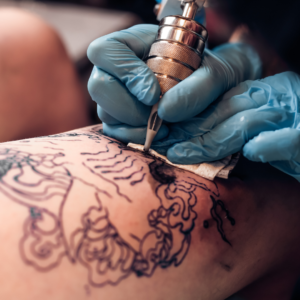As we’ve highlighted before, one of the biggest challenges to business growth is a business owner letting go. You need to move beyond micromanaging and to trust, empower and invest in your team. This doesn’t just mean hiring skilled people, but actively supporting and equipping them to take initiative and make meaningful decisions.
By adopting a growth-oriented mindset – one that champions delegation, development and strategic involvement – you’ll create a foundation for sustainable success.
Building and empowering a strong team
Growth in any business is built on the strength and capabilities of its team. When you bring on people who are skilled and trustworthy, your responsibility is to enable those people to excel. This requires:
- Empowering the team to make decisions: When you encourage your team to step up, they gain confidence and refine their problem-solving skills
- Providing the right tools and resources: Empowerment is only as effective as the resources backing it up. Equipping the team with the tools they need to do their jobs well is a crucial investment
- Delegating thoughtfully: Delegation is not about handing over tasks without guidance; it’s about training and supporting the team in ways that build both trust and autonomy
To foster this growth, it’s also essential for you to understand that not all decisions are the same. Some are minor and reversible, others are impactful but not permanent and a few are so significant they require deeper consideration. Recognising these differences allows you to delegate decisions wisely and support the team in making the right call.
The three types of business decisions:
To clarify which decisions should be delegated versus kept at leadership level, let’s explore the three types of business decisions. The analogy is the Hat, Haircut and Tattoo decisions!
The Hat business decisions:
 The Hat decision is akin to trying on a hat – you can quickly decide if you like it, and if not, you can take it off right away. These decisions are typically minor, quick to change and low risk. They include tasks like testing a new social media strategy, adjusting a sales tactic or updating a non-essential process. The Hat decision:
The Hat decision is akin to trying on a hat – you can quickly decide if you like it, and if not, you can take it off right away. These decisions are typically minor, quick to change and low risk. They include tasks like testing a new social media strategy, adjusting a sales tactic or updating a non-essential process. The Hat decision:
- Requires minimal risk and commitment
- Can be adjusted or reversed easily if it doesn’t work out
Since Hat decisions are low-stakes and easy to modify, they can be delegated to the team. Trusting them to handle these choices not only lightens your load but also builds confidence and decision-making skills within the team.
The Haircut business decisions:
 The Haircut decision involves more consideration because the impact, while not permanent, will last for a while. Think of it like a haircut – if it doesn’t turn out as planned, you may have to live with it for several weeks/months until you can get it reshaped. Haircut business decisions might include launching a short-term project, introducing a new product feature, or choosing a vendor for an event. The Haircut decision:
The Haircut decision involves more consideration because the impact, while not permanent, will last for a while. Think of it like a haircut – if it doesn’t turn out as planned, you may have to live with it for several weeks/months until you can get it reshaped. Haircut business decisions might include launching a short-term project, introducing a new product feature, or choosing a vendor for an event. The Haircut decision:
- Has a moderate impact and lasts longer than a Hat decision
- May take some time to adjust if it doesn’t yield the desired result
You should aim to train and empower your team to make these decisions as well. The team may need guidance initially, but as they gain experience, they’ll become more comfortable handling such decisions independently.
The Tattoo business decisions:
 The Tattoo decision is the highest stakes of all; it’s essentially permanent and has lasting consequences. Just as a tattoo is difficult to remove, these decisions are often transformative and nearly irreversible. Examples of Tattoo business decisions include rebranding the company, making a significant merger or investing in a large new facility. These choices:
The Tattoo decision is the highest stakes of all; it’s essentially permanent and has lasting consequences. Just as a tattoo is difficult to remove, these decisions are often transformative and nearly irreversible. Examples of Tattoo business decisions include rebranding the company, making a significant merger or investing in a large new facility. These choices:
- Require deep consideration and alignment with the company’s long-term vision
- Have a lasting impact on the business and typically involve significant financial or cultural implications
Tattoo decisions should involve you directly. These decisions shape the very fabric of the business and often require your unique perspective, values and foresight.
Training, supporting and empowering your team in decision-making
To empower a team to make effective Hat and Haircut business decisions, you need to prioritise training and development:
– Develop decision-making skills: Start by asking the team for their input before you share your opinion. This approach helps them think critically and builds decision-making confidence.
– Encourage autonomy: Allowing the team to try new approaches – even if they occasionally fail – will reinforce their independence and their problem-solving skills. Offering feedback afterward helps them grow without undermining their autonomy.
– Define clear boundaries: Establish which decisions fall under the Hat, Haircut, and Tattoo categories. Clearly communicate expectations and help the team understand where they have full control and where they may need your guidance or approval.
When you focus on empowering your team, you’ll free yourself to concentrate on the Tattoo-level business decisions that truly shape the future. This framework will make the company more efficient and foster a team capable of driving continuous improvement and innovation.
Delegation drives sustainable growth
Recognising that not all business decisions are equal will help you delegate with confidence, creating a more agile, empowered team. By trusting the team with Hat and Haircut decisions, you’ll create an environment where each individual feels capable, supported and valued. This fosters a culture of ownership and initiative, ultimately positioning the business for sustainable growth and success.
If you’re looking to grow your business, please book a complimentary 30-minute chat with Bill. In the call you can explore how you can effectively empower your team for better decision-making to give you more time to focus on your business growth.




